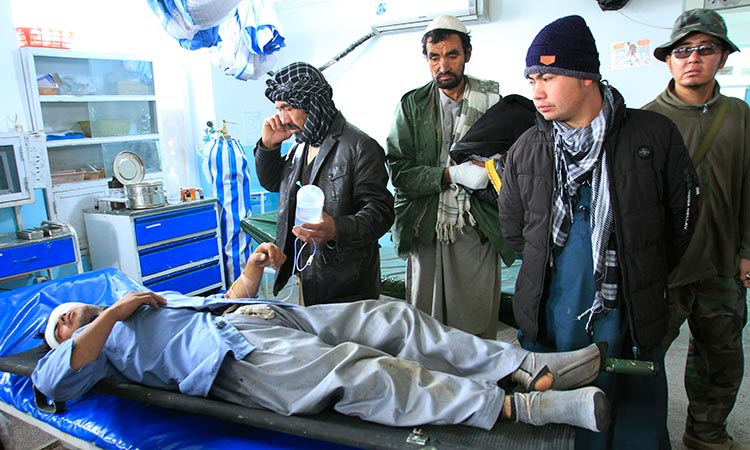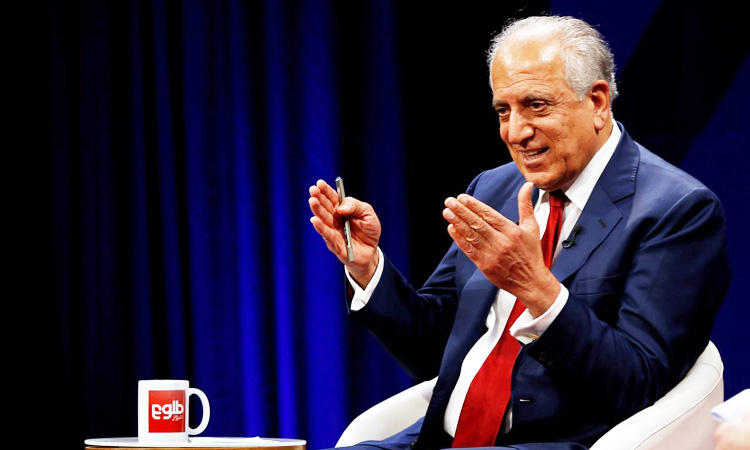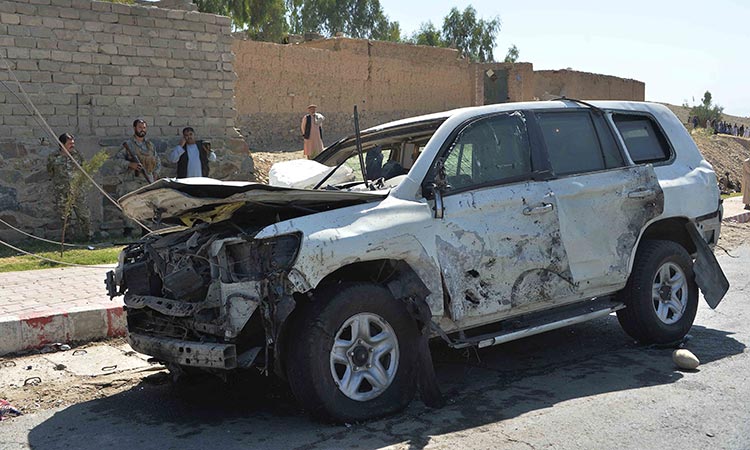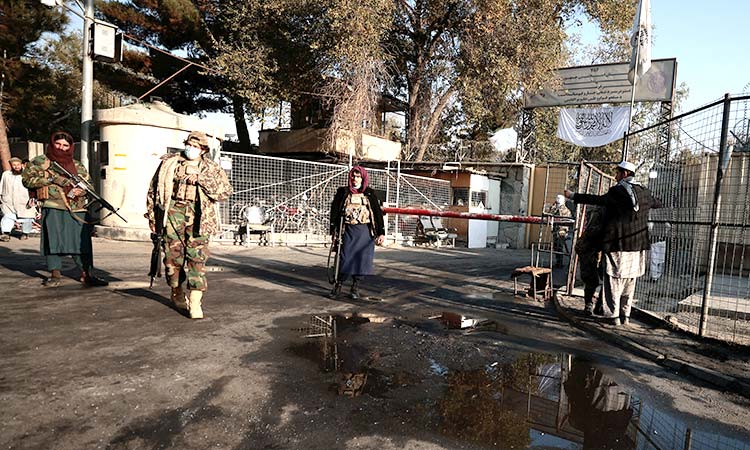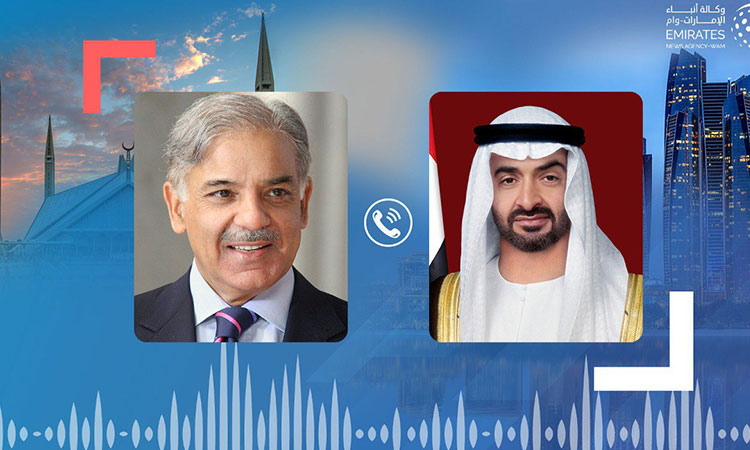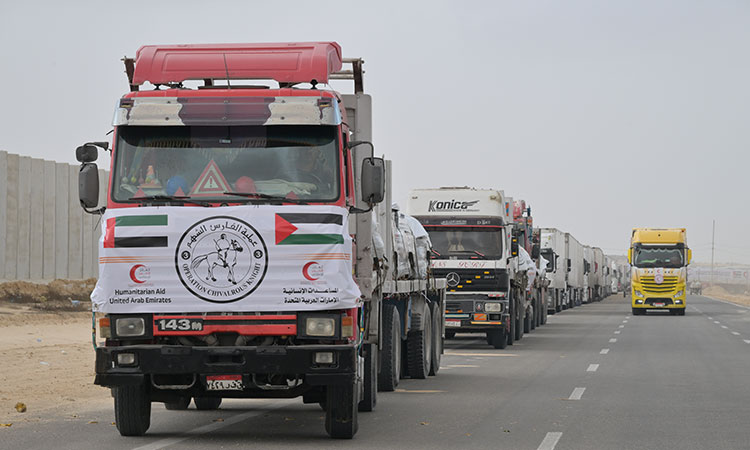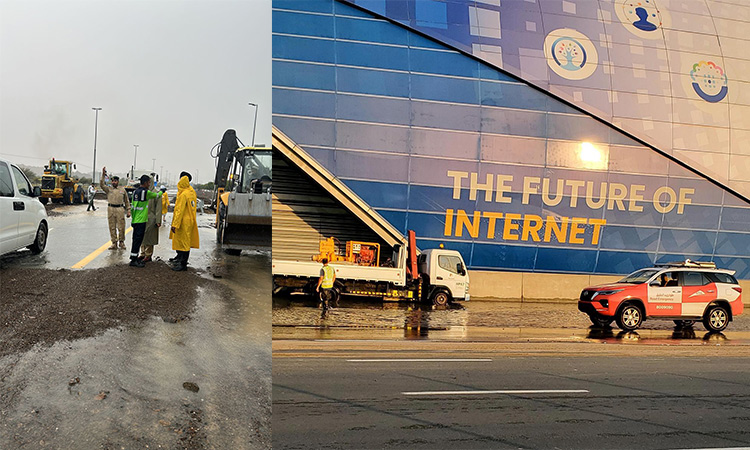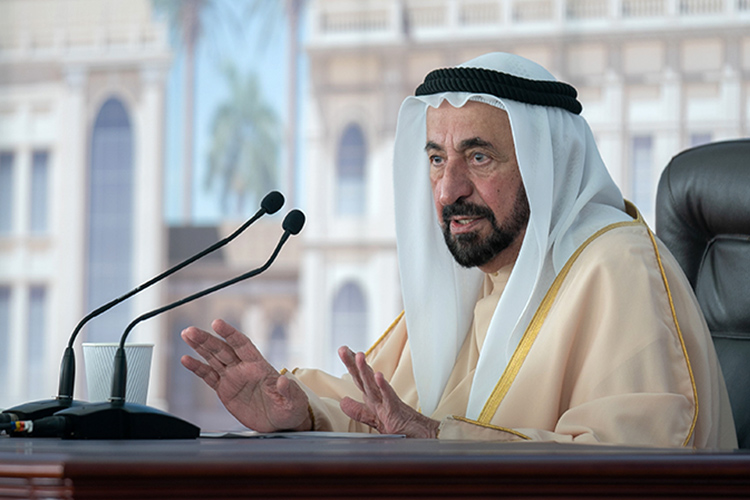Kabul aid groups reel after nine killed in Taliban attack
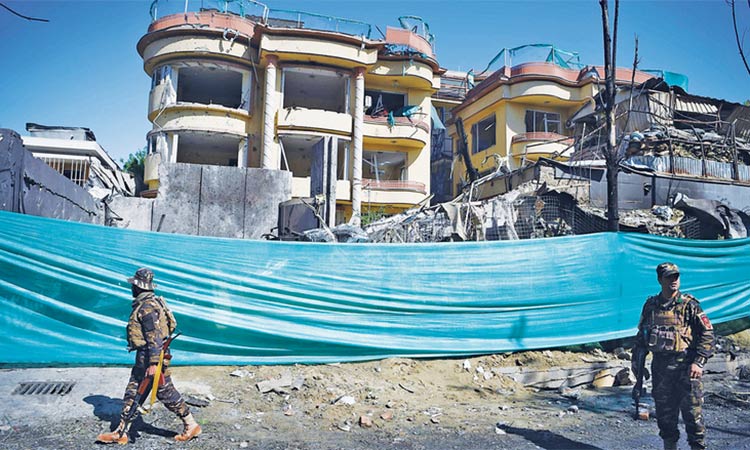
Afghan security forces stand at the site of an attack by Taliban militants in Kabul on Thursday. Agence France-Presse
The targeting of Counterpart International, a US-funded non-profit group working with marginalised people, highlights the continued vulnerability of aid groups across Afghanistan, where some organisations have been forced to suspend operations or pare their presence.
Wednesday’s attack came during the Holy month of Ramadan, and as US and Taliban officials were meeting in Qatar for peace talks — throwing into question the progress of ongoing negotiations.
Interior ministry spokesman Nasrat Rahimi said the death toll from a car bomb and follow-up attack in central Kabul had risen from five to nine.
Among the victims were three workers — a driver, a watchman and a technical advisor — from anti-poverty group CARE, whose offices are next to Counterpart.
“This attack reflects the increasing dangers of humanitarian work in conflict-affected countries such as Afghanistan and the unfortunate daily reality of violence for many Afghan families,” CARE said in a statement.
Afghanistan was once a hub of foreign aid but deteriorating security in recent years has seen international groups shrink their footprint, making it even more difficult to deliver desperately needed help to the war-torn country’s most vulnerable citizens.
Last year was particularly deadly. According to the UN Office for the Coordination of Humanitarian Affairs, 30 aid workers were killed in 2018, compared to 19 in 2017, and 16 in 2016.
British aid group Save the Children suspended operations across Afghanistan following a 2018 Daesh group attack on its compound in the eastern city of Jalalabad that killed three employees and wounded several others.
Ann Hudock, Counterpart’s president and CEO, said attackers had targeted “innocent civilians, development professionals who dedicate their lives to improving the lives of Afghanistan’s most vulnerable, including women, youth, and the disabled”.
The Taliban, known for their brutal repression and isolation of women before their ouster in 2001, said they targeted Counterpart because it promoted the “inter-mixing” of men and women.
Wednesday’s attack began with an immense blast from a car bomb in a busy commercial area. The explosion felled trees and shredded dense concrete blast walls on the street outside.
The blast radius extended hundreds of metres (yards) in all directions, blowing out windows in nearby homes and businesses.
In addition to the nine dead, 20 civilians were wounded in the attack, which saw four Taliban gunmen storm the Counterpoint compound after the blast. They were all killed after Afghan commandos led an hours-long clearance operation.
Dozens of workers could be seen sweeping debris and broken glass from streets in the popular Shahr-e-Naw neighbourhood in central Kabul, which is home to shops, restaurants and hotels.
Meanwhile in the Qatari capital Doha, US peace envoy Zalmay Khalilzad was leading talks with Taliban officials in a push to end America’s nearly 18-year military involvement in Afghanistan.
The two foes are hammering out a deal that could see foreign forces leave Afghanistan in return for a ceasefire, talks between Kabul and the Taliban, and a guarantee the country will not be used as a safe haven for terror groups.
Several critics said Wednesday’s attack highlighted the apparent paradox of America asking the Taliban to safeguard Afghanistan from terror groups, when the insurgents themselves employ terror tactics.
“The ‘Taliban’ embody crime, which is not amenable to peaceful conflict resolution initiatives,” Afghanistan’s chief executive Abdullah Abdullah said on Twitter.
“They misinterpret our goodwill as weakness and misuse peace negotiations to seek legitimacy for heinous crimes of the sort they committed yesterday in Kabul.” Afghan President Ashraf Ghani last week offered the Taliban a ceasefire beginning on the first day of Ramadan — but the insurgents refused.
Abdul Halim Halim, head of Afghan Relief, an aid agency that provides education and assistance to returning refugees, expressed his concerns for more than 200 of the group’s employees across the country.
Agencies
